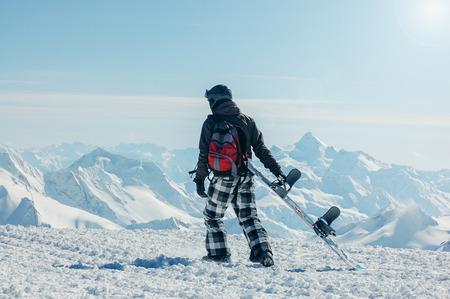1. Introduction to Hiker Slang in the US
Across the United States, hiking isnt just about hitting the trail—its also about joining a unique community with its own language. Hiker slang is a collection of special words and phrases used by those who love to explore the great outdoors. From funny nicknames for gear to clever terms for trail experiences, this slang helps hikers connect and share their adventures. But did you know that hiker slang can change depending on where you are in the country? Just like accents and food traditions, the words hikers use can be very different on the East Coast compared to the West Coast.
Why Does Regional Hiker Slang Develop?
The United States is huge, and each region has its own history, environment, and hiking culture. These differences shape how people talk about their outdoor experiences. For example, trails in the Appalachian Mountains have been traveled for generations, while Western trails might take you through deserts or up rocky peaks. Local wildlife, weather, and even trail conditions all inspire unique slang terms that make sense only in those places.
Common Reasons for Regional Dialects:
| Reason | How It Influences Slang |
|---|---|
| Landscape & Geography | Different terrains (like forests vs. deserts) inspire specific terms for local features. |
| Weather & Seasons | Regional weather patterns lead to slang about mud, heat, rain, or snow unique to each area. |
| Cultural Traditions | Long-standing communities develop their own nicknames and inside jokes about hiking. |
| Wildlife & Plants | Animals and plants found only in certain regions become part of local trail vocabulary. |
Examples of Hiker Slang Across Regions
| Region | Slang Example | Meaning |
|---|---|---|
| East Coast | NoBo / SoBo | Northbound or Southbound hiker on long trails like the Appalachian Trail |
| West Coast | PCT Class of 24 | A group hiking the Pacific Crest Trail in a specific year; common on Western long trails |
This rich tapestry of regional slang gives every hike a local flavor and helps hikers feel like they belong wherever their boots take them. In the next sections, well dive deeper into how these variations show up from coast to coast.
2. East Coast Lingo: Appalachian Trail Influence
The Roots of East Coast Hiker Slang
Hiking on the East Coast, especially along the legendary Appalachian Trail (often called the “AT”), comes with its own set of unique words and phrases. The trail’s long history and close-knit hiking community have shaped a distinctive language that helps hikers bond and communicate efficiently. Many terms are used in everyday conversation among East Coast hikers but might sound foreign to those from other regions.
Common Appalachian Trail Expressions
| Term | Meaning | Example Usage |
|---|---|---|
| NoBo / SoBo | NoBo means “northbound” hiker; SoBo means “southbound” hiker on the AT | “I met a NoBo at the shelter last night.” |
| Trail Magic | Unexpected acts of kindness or free treats provided by strangers (called “trail angels”) | “We got some trail magic—cold sodas at the road crossing!” |
| Zero Day | A rest day with zero miles hiked, often spent in a nearby town | “After six days on trail, I needed a zero day in Damascus.” |
| Slackpacking | Hiking without a full backpack, usually because someone shuttles your gear ahead for the day | “We’re slackpacking tomorrow to give our backs a break.” |
| Blue Blaze / White Blaze | The AT is marked by white blazes; blue blazes indicate side trails or alternate routes. “Blue-blazing” sometimes means taking shortcuts. | “He blue-blazed around that tough mountain section.” |
| Shelter Logbook | A notebook kept in many shelters where hikers leave notes, tips, and stories for each other. | “Don’t forget to sign the shelter logbook before you head out.” |
| Hiker Midnight | The unofficial bedtime for hikers—usually just after sunset. | “It’s hiker midnight; I’m heading to bed.” |
| Yellow Blazing | Catching a ride along a road to skip part of the trail (yellow lines refer to road markings). | “He admitted to yellow blazing through Pennsylvania.” |
| LASHer / Thru-Hiker / Section Hiker | LASHer: Long-Ass Section Hiker (doing big sections at a time). Thru-hiker: hiking the whole trail in one go. Section hiker: completing parts over several trips. | “I’m a section hiker, but I met a thru-hiker at camp.” |
| Bounce Box | A package mailed ahead to yourself with supplies you’ll need later down the trail. | “I’ll pick up my bounce box in the next town.” |
Why This Slang Matters on the AT
This unique vocabulary not only makes communication easier but also creates a sense of belonging among hikers. Sharing these terms is part of what makes hiking on the East Coast—and especially along the Appalachian Trail—such a memorable and communal experience. Whether you’re new to hiking or an experienced backpacker, learning this lingo can help you feel right at home on the AT.
![]()
3. West Coast Vernacular: Pacific Crest Trail Culture
When it comes to hiking lingo, the West Coast—especially communities along the Pacific Crest Trail (PCT)—has its own unique vocabulary. This trail, stretching from Mexico to Canada, has inspired a culture full of colorful terms and inside jokes that you might not hear on the East Coast.
Popular West Coast Hiker Slang
West Coast hikers often use words shaped by the long-distance thru-hiking community. Many of these phrases are tied directly to life on the PCT. Heres a look at some of the most common slang youll hear if you join a conversation with a PCT hiker:
| Term | Meaning |
|---|---|
| Zero Day | A day when no hiking miles are completed; a full rest day on the trail. |
| Nero | A “nearly zero” day—a short hike followed by lots of rest or town time. |
| Trail Angel | A local person who helps hikers, usually with rides, food, or water. |
| Trail Magic | An unexpected act of kindness on the trail, like free snacks or drinks left out for hikers. |
| NoBo / SoBo | Northbound (NoBo) or Southbound (SoBo) hiker, referring to which way someone is hiking the trail. |
| Hiker Trash | A playful term for dedicated long-distance hikers who embrace the simple, sometimes messy trail lifestyle. |
| PCT Class of [Year] | The group of people attempting to thru-hike the PCT in a specific year, e.g., “PCT Class of 2024.” |
| Bounce Box | A package mailed ahead to yourself containing supplies you don’t need right away. |
| LNT (Leave No Trace) | A widely used principle reminding hikers to respect nature and clean up after themselves. |
| Yogi-ing | The art of politely hinting for food or help from non-hikers without directly asking. |
How West Coast Slang Shapes Trail Culture
This specialized vocabulary reflects the spirit and camaraderie of the PCT community. For many West Coast hikers, these terms aren’t just words—they’re part of their identity and daily experience. Whether you’re talking about your latest “zero,” thanking a “trail angel,” or describing some unexpected “trail magic,” using this lingo instantly connects you to fellow hikers who understand what life on the PCT is all about.
4. Shared Terms and Cross-Country Blends
Even though hiker slang can be very regional, some terms have found their way into conversations on both the East and West Coasts. As more hikers travel across the country and share their adventures online, words and phrases mix together, creating a kind of “hiker lingo” that everyone understands. Let’s take a look at how this happens and which expressions have become universal among American hikers.
How Slang Travels Coast to Coast
In the past, hiker slang would mostly stay local because people rarely hiked far from home. But now, with cross-country road trips, popular trails like the Appalachian Trail (AT) and Pacific Crest Trail (PCT), and social media groups, language spreads fast. Hikers pick up new terms while traveling or chatting in online forums, then bring them back to their own trails. This creates a blend of slang that feels familiar no matter where you hike.
Popular Shared Hiker Slang
Here are some of the most common hiking terms that bridge both coasts:
| Term | Meaning | Where Youll Hear It |
|---|---|---|
| NoBo / SoBo | Northbound or southbound hiker (especially on long trails) | Both East & West Coast trails |
| Trail Magic | Unexpected acts of kindness for hikers (food, rides, supplies) | Nationwide, especially on long-distance trails |
| Zero Day | A day with zero hiking miles (rest day) | All over the U.S. |
| Section Hiker | Someone hiking parts of a trail instead of all at once | Used coast to coast |
| Hiker Trash | A playful nickname for thru-hikers living simply on trail | Became popular everywhere via social media |
| PUDs (“Pointless Ups and Downs”) | Tough trail sections with lots of elevation change but little progress | Heard on both AT and PCT communities |
| LNT (“Leave No Trace”) | The ethic of leaving the outdoors as you found it | Universal among American hikers |
The Role of Social Media and Travel in Blending Slang
Instagram stories, YouTube vlogs, Facebook groups, and even TikTok have made it easy for hikers from all over the country to learn each other’s slang. When someone shares a funny phrase or useful tip online, it quickly spreads and becomes part of everyday trail talk. This is why you’ll hear someone from New York using “trail magic” in California or a Seattle hiker calling themselves “hiker trash” in North Carolina. The more we connect through travel and technology, the more our language blends together—making hiking feel like one big community.
5. The Impact of Slang on Hiker Identity
Hiking slang is more than just words—its a badge of belonging for trail communities across the United States. On both the East and West Coasts, hikers use unique phrases that help them feel like part of a special group, while also reflecting the local landscape and culture. Lets take a closer look at how these regional differences in language shape hiker identity and strengthen community bonds.
How Slang Creates Community
When hikers use region-specific slang, it signals to others that theyre “in the know.” This shared language acts as a secret handshake, instantly connecting people who might otherwise be strangers. For example, an Appalachian Trail hiker talking about “trail magic” will instantly connect with fellow East Coasters, while a Pacific Crest Trail hiker who mentions “trail angels” is speaking the language of the West. Knowing and using these terms makes newcomers feel welcome and experienced hikers feel proud of their trail heritage.
Regional Slang: Expressions and Meanings
| Region | Common Slang | What It Means |
|---|---|---|
| East Coast (Appalachian Trail) | Trail Magic | Unexpected acts of kindness on the trail, like free snacks or rides from locals |
| East Coast (White Mountains) | Hut Croo | The team working in mountain huts, providing food and shelter to hikers |
| West Coast (Pacific Crest Trail) | Trail Angels | People who help hikers with supplies, food, or rides along the PCT |
| West Coast (Sierra Nevada) | Sobo/Nobo | Southbound/Northbound hiker—refers to direction of travel on long trails |
The Unique Spirit of Each Region
The words hikers use reflect not just geography but also attitude. East Coast slang often feels homey and traditional, echoing the regions deep history and tight-knit trail towns. West Coast lingo tends to be laid-back and adventurous, matching the open landscapes and pioneering spirit found out west. For example, talking about “the green tunnel” (dense forest canopy) is common in Appalachia, while “the desert stretch” resonates with those trekking through California or Oregon.
A Sense of Belonging on Every Trail
No matter which coast you hike on, learning local slang helps you blend in and find your place within the hiking world. Whether youre swapping stories at a hostel in Maine or a campsite in Washington, knowing the right words can turn any group of hikers into instant friends—proving that language really does shape the spirit of every trail community.


